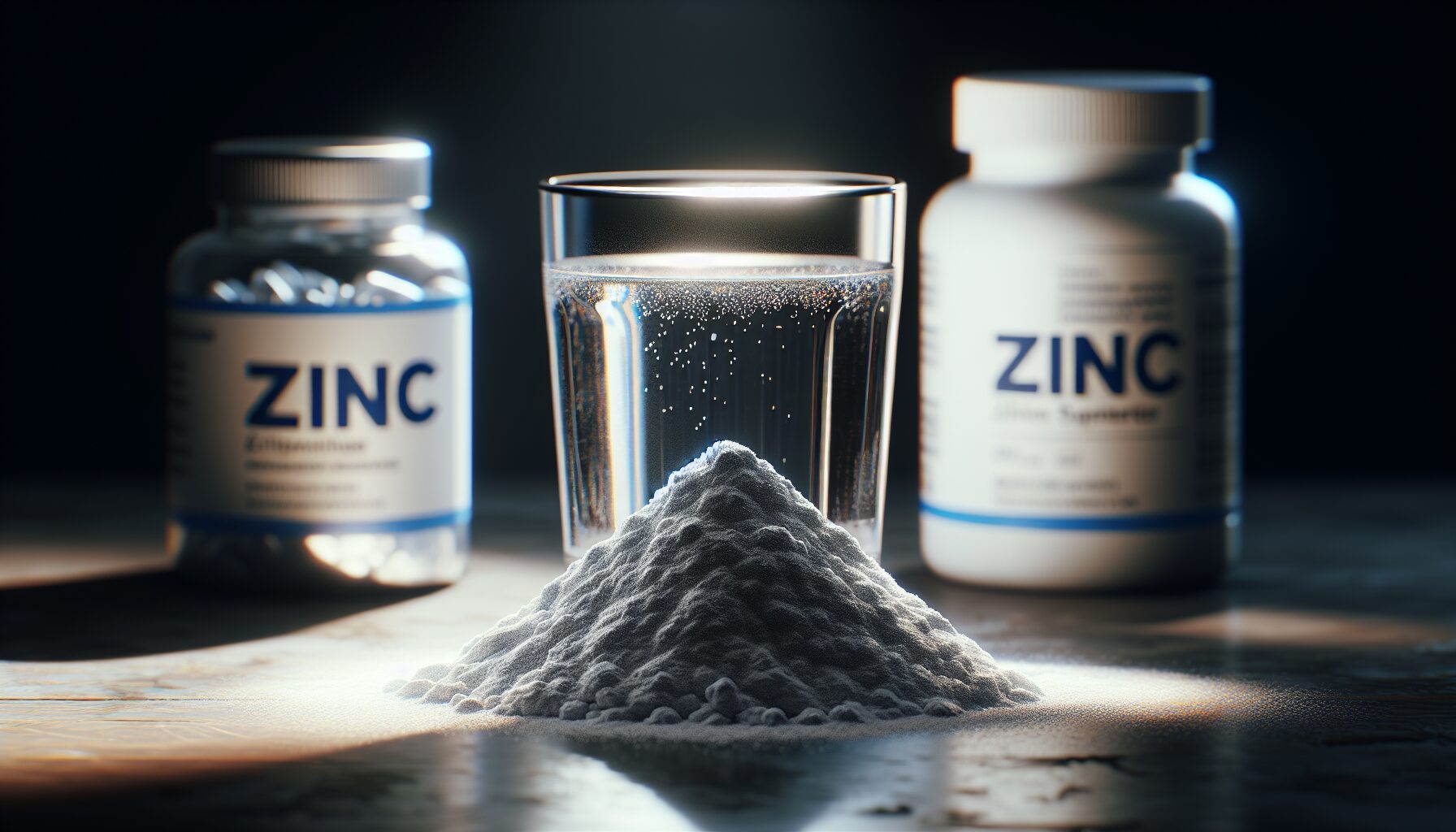
Zinc Oxide Or Zinc Citrate Supplement: Why Mineral Form Matters
When looking for a mineral supplement, for example zinc, you are often presented with the choice of either zinc oxide or zinc citrate supplement. You may be thinking these are both zinc supplements so either is fine and that there are no differences. However, this is not the case. Knowing the differences between different mineral forms is how you could potentially take your health to the next level.
Different mineral forms have different biological effects within the body because of the paired or conjugated partner. Oxide and citrate of zinc behave differently within the body. In some cases, there can be significant health effects or differences. Zinc oxide for example may have antibiotic or antimicrobial effects in the intestines, removing beneficial bacteria with short term diarrhea as a side effect, over zinc citrate.
Zinc is just one example where there are mineral complex differences in potential health benefits. Up to 20% of the global population is thought to be at risk for zinc deficiency. This antioxidant mineral is crucial for growth, hormone regulation, wound healing, enzyme activity and immune system functioning.
People at risk of zinc malabsorption include those with Celiac’s disease, alcohol use disorders or gastrointestinal conditions. Some recommendations to treat mild zinc deficiency suggest that you should take two to three times the zinc RDA. While similar recommendations suggest that a severe zinc deficiency should be treated with four to five times the zinc RDA for six months. This requires a highly bioavailable or absorbable zinc supplement.
In this article the key differences between zinc oxide and citrate supplements will be considered, showing why the form of mineral is something you should consider when purchasing a supplement.

Why Form Of Mineral Supplement Matters
The paired chemical partner of a mineral is very important to how a supplement behaves in the body. This also dictates its health effects. While the zinc itself as a mineral has fixed potential health benefits in the right amounts, as shown by research, the conjugated chemical can dictate certain health effects in the body. This can include things like where the mineral goes in the body or how powerful the effects are. Certain minerals forms don’t really penetrate that far into the body either.

Zinc Complex Absorption: Zinc Oxide vs Zinc Citrate
There are various zinc complexes, as with all minerals, such as zinc oxide, zinc acetate, zinc glycinate, zinc citrate, zinc picolinate, zinc sulphate and zinc gluconate. They may all have slightly different health effects within the body because of differences in absorption.
Different zinc complexes, with varying conjugated chemicals, were tested for absorption by one research team. They found that zinc picolinate had preferential absorption for zinc into the body over forms like zinc citrate. The patients who were given the supplements experienced a much bigger rise in zinc levels in the blood serum with zinc picolinate, while zinc citrate complexes offered a lower zinc intake. Zinc picolinate also performed better for absorption and overall zinc status than zinc gluconate in another similar study.
One study determined that the absorption of zinc from zinc citrate and also zinc gluconate was far greater than from zinc oxide. With absorption of mineral zinc from zinc gluconate being very similar to zinc citrate. Some forms of zinc like picolinate or bisglycinate can be up to 43.4% more bioavailable than other zinc complexes.
Some studies suggest that natural or organic zinc complexes, as we would find in our foods, are the most bioavailable. For example, zinc–histidine and zinc-yeast complexes are more bioavailable for zinc than some zinc forms, like zinc sulfate or gluconate. Dietary protein in general improves zinc bioavailability, with meat improving the intake of zinc verses plant protein. Because of similarities, iron supplements and zinc can sometimes counter each other for absorption. Absorption of zinc from a onetime supplement is much higher than from our food.

Zinc Complex Solubility For Absorption
Zinc is an essential water soluble mineral and different zinc complexes have different solubility in water as well. This can affect absorption and potential health benefits. While zinc oxide is soluble in dilute stomach acids, it is not very water soluble compared to zinc citrate. This means you may experience superior health benefits from zinc citrate compared to zinc oxide because of differences in solubility and absorption. Both zinc citrate and zinc picolinate are more soluble in water.
A study with zinc gluconate and zinc oxide emphasises the importance of mineral complex solubility or absorption for mineral potential health benefits. This study concluded that zinc gluconate significantly improved blood zinc levels compared with zinc oxide, while another study found the same with zinc sulphate against zinc oxide. Similar studies also conclude that zinc oxide is less well absorbed compared to zinc citrate when given as a food supplement and would be better to treat diarrhea.
If you pick a different mineral zinc complex with low absorption, you will experience lower potential benefits from that mineral than you would from ones with higher absorption. This makes for an interesting decision when you make a supplement purchase. Because a more expensive mineral complex is going to potentially be better value for money than a cheaper one.

Mineral Complex Cell Use
Some cells can use different zinc complexes slightly better than others as well. This can influence the potential health benefits from some minerals. The science behind this is simple, certain mineral complexes share chemical partners that are recognised by cells. Citrates and gluconates may be recognised by sugar group up taking or metabolising areas of cells.
One study highlights this important difference, with zinc complexes such as zinc citrate experiencing a far improved uptake into cells than other zinc mineral complexes. This effect is twofold. One, increased intake from intestinal cells that recognise the zinc complexes more easily. Two, an improved use by cells within the body. These two factors influence potential health benefits from mineral supplements.
Because of the oxide complex, topical zinc oxide may have a slightly higher topical benefit for skin cells as an antifungal, anti-candida or anti-wart treatment than other zinc complexes. This zinc complex also seems to encourage decreases in sebum production and improve skin recovery, which may have benefits for acne sufferers. Topical zinc oxide can also be used as a mild sunscreen. Zinc citrate showed very little inhibitory effects against some mouth bacteria on a bacteria plate against zinc complexes like zinc acetate or zinc sulfate which had higher inhibition. While zinc citrate and aspartate were effective in the body to reduce arthritic symptoms, showing some antibacterial effects.

Summary
There are different forms or complexes of minerals available as a supplement, which sometimes have varying biological health effects within the body. For example, with zinc, one is often presented with forms such as zinc picolinate, zinc oxide or zinc citrate. Knowing the differences between these complexes could really take your health to the next level.
The partnering complex can really influence aspects of the mineral in the body. Research shows that zinc citrate supplements are more bioavailable within the body than zinc oxide supplements. While zinc oxide supplements may have more of an antimicrobial effect, especially on the skin.
Also, zinc oxide is not very soluble in water but does dissolve in stomach acid. Whereas zinc citrate is very soluble in water. This is very important for zinc absorption, considering that this mineral is water soluble. An important study showed that cells may also prefer to intake zinc citrate over zinc oxide, because it is more easily recognised by them. These are important factors that can influence the overall benefits of a mineral supplement within the body.
Zinc picolinate seems to be the most bioavailable form of zinc, shown consistently through various studies with zinc complexes. Some zinc complexes can be up to 40% more bioavailable than other zinc complexes. Other studies suggest that organic zinc complexes, as we would find in our foods, are the most bioavailable.
Research shows that there are clear differences between different mineral complexes and their health effects within the body.
For more interesting articles, see the main page below.





